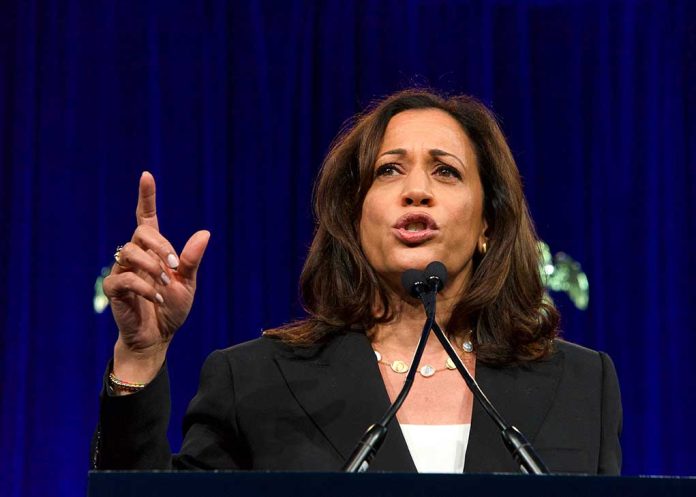
Trouble brews for Vice President Kamala Harris as a campaign donation sparks public outcry and scrutiny.
At a Glance
- Vice President Harris received $50,000 from Stella Ke Li, an executive with ties to the CCP.
- Donation from an entity linked to foreign governments triggers national security concerns.
- Driving Force Action PAC calls for Harris to sever ties with BYD and return the donation.
- Congress is investigating BYD over potential espionage activities.
Links to the Chinese Communist Party
Vice President Kamala Harris’s acceptance of a $50,000 donation from Stella Ke Li has brought her campaign under intense scrutiny. Ke Li, a senior executive at BYD, a Chinese electric vehicle company, has ties to the Chinese Communist Party, raising serious ethical and national security concerns. Concerns deepen as BYD collaborates with military affiliates on projects involving data aggregation and technological exchanges with state-owned enterprises.
The donation coincides with the Biden-Harris Administration’s allocation of $395,000 to BYD for the Clean School Bus program in 2022. Just six months before this funding was approved, Ke Li made substantial contributions, including $25,000 to the Biden Victory Fund, $18,400 to the Democratic National Committee, and $6,600 to the Biden campaign. These financial ties with BYD, coupled with its state-backed status, amplify the complex dynamics of foreign influence in American politics.
How Kamala Harris Allowed a Suspected Chinese Spy to Interfere in a Key California Election
Several of those same supporters donated tens of thousands of dollars to Harris’s political campaigns before and after the scheme was exposed.https://t.co/WqFdPDdL8S
— Steve Gruber (@stevegrubershow) October 23, 2024
Calls for Transparency and National Security
Driving Force Action PAC has been active in pushing for transparency, urging Vice President Harris to return these contributions. In their statement, the PAC emphasized that accepting political contributions from a company executive with strong ties to the CCP poses substantial threats to national security and ethical campaign practices.
Congress has embarked on an investigation into BYD amid fears of potential espionage through its vehicles in the United States. Such inquiries are integral to determining whether foreign entities can influence technology and data sharing, potentially compromising U.S. security and citizen privacy.
NEWS ALERT: Unearthed posts expose close ties between Kamala Harris friend running for US Congress and a top Chinese executive https://t.co/FbdN45JfII
— DMLNewsApp (@DMLNewsApp) October 22, 2024
Questioning Policies and Promises
The entire matter persists amidst broader concerns regarding Vice President Harris’s policies on reducing dependency on foreign governments for critical resources. Her prior stances seem to conflict with the acceptance of these donations. Amid escalating tensions and a growing debate over Harris’s electric vehicle mandates, critics argue these policies could jeopardize American labor and industry.
With former President Donald Trump pledging to repeal electric vehicle mandates should he return to office, the discourse surrounding national security, economic strength, and independence will remain pivotal in the upcoming elections.







